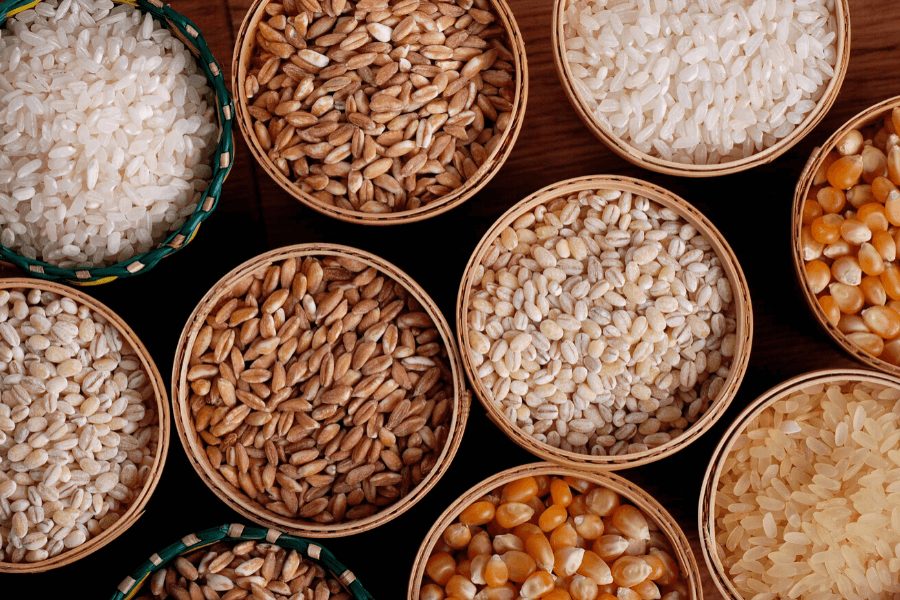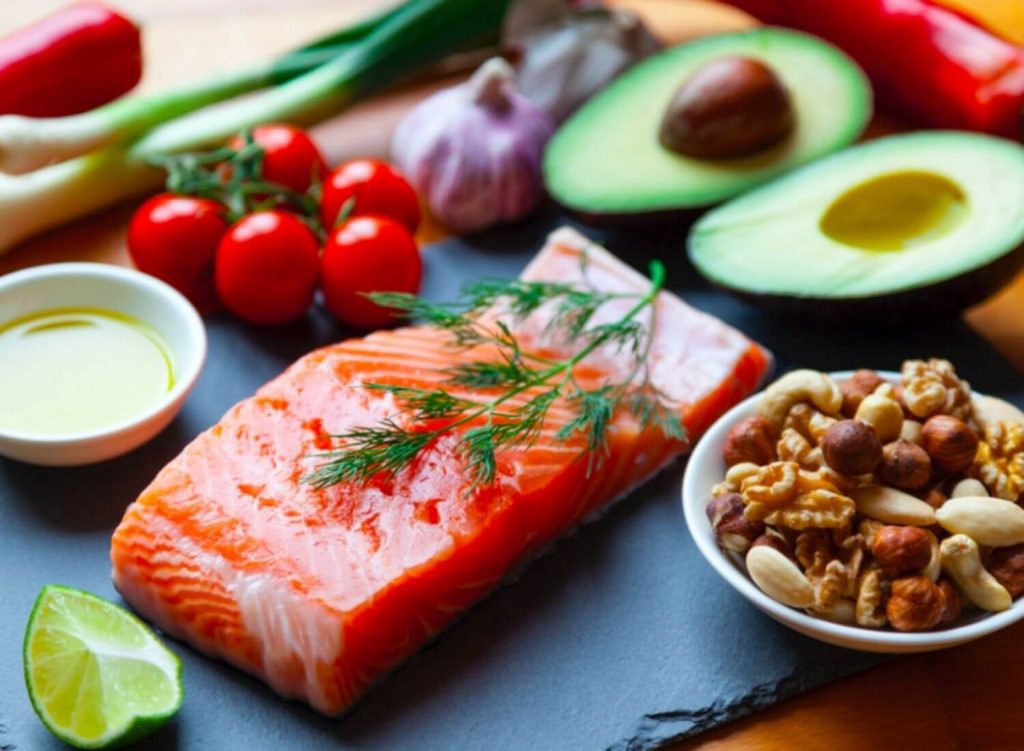The MIND Diet is created by combining two diets, which are the Mediterranean diet and the Dash diet. It stands for Mediterranean-DASH Intervention for Neurodegenerative Delay. The MIND diet was created to focus on improving brain health and preventing dementia. The MIND diet is also the best option for lowering the risk of Alzheimer’s disease.
The Mediterranean diet is inspired by Mediterranean countries’ traditional eating habits, which are great in reducing the risk of heart diseases. The DASH diet (Dietary Approaches to Stop Hypertension) helps in lowering the blood pressure. Researchers wanted to find the relation between the food and the effects on our brain health. Hence, they combined these two diets and created the MIND Diet, which is slightly different from the Mediterranean diet and the DASH diet.
The MIND Diet is focused on increasing the consumption of fruits, vegetables, lean proteins, healthy fats, and whole-grain and decreasing the consumption of saturated fats.
Foods To Eat
1. Green And Leafy Vegetables

Leafy vegetables are a good source of vitamin K, folate, and beta-carotene. This diet includes spinach, lake, Swiss chard, beet greens, collards, arugula, cooked greens, and salads. Have six or more servings of these vegetables per week.
2. All Other Vegetables

Bright colored vegetables are rich in antioxidants. You should have other vegetables with green leafy vegetables. Avoid starchy vegetables because non-starchy vegetables have lots of nutrients and low calories. Consume vegetables like green beans, carrots, eggplant, bell pepper, etc. Have them once at least a day in cooked or raw form.
3. Berries

Berries are rich in polyphenols and antioxidants, which benefits brain health—berries such as blueberries, strawberries, blackberries, raspberries, mulberries, etc. Blueberries and strawberries are extra beneficial. Have 4-5 servings of berries per week.
4. Nuts

Nuts help in lowering the blood pressure and LDL cholesterol, i.e., the bad cholesterol. Have various types of nuts to get a variety of nutrients. Walnuts have extra benefits. Try to have one serving per day or five servings per week.
5. Olive Oil

Olive oil is an excellent source of monounsaturated fat. Extra virgin olive oil is the best option. Use this oil as a cooking oil in replacement to butter or margarine. It will help you to reduce inflammation and promote healthy blood vessel function.
6. Whole Grains

Whole grain has dietary fibers that support cardiovascular health. Have whole grains like oatmeal, quinoa, brown rice, whole-wheat pasta, and 100% whole wheat bread. You can have three servings per day.
7. Fishes

Fish is the best source of omega 3 DHA and EPA, which are beneficial for a healthy brain. You can have fatty fish like salmon, sardines, trout, tuna, and mackerel in your diet. Eat fish once a week.
8. Beans

Beans have low glycemic carbs and proteins. Black beans, pinto beans, red beans, kidney beans, mung beans, soybeans, and lentils, etc. are the beans you can choose for your meals. Have 4-5 per week servings.
9. Poultry

Chicken and turkey are the best choices for a healthy heart and brain. Avoid red meat and fried chicken. Add chicken and turkey in 3-4 servings per week. These protein choices serve as a better option for health aspects.
10. Wine

A moderate amount of alcohol increases the level of good cholesterol that is HDL (High-Density Lipoprotein), but excessive alcohol is not beneficial. White and red wine are good for brain health. Wine will help in lowering the risk of Alzheimer’s disease. Avoid having more than one glass of wine, beer, or spirit.
Foods To Avoid
1. Butter And Margarine

Instead of butter and margarine, try olive oil as a primary cooking oil. Since butter has high saturated fats in it, it is better to avoid it when following this diet. Margarine is comparatively better than butter, but still don’t overconsume it. Limit the intake of butter and margarine to less than 1 tablespoon daily.
2. Cheese

All love cheese. Cheese is a key ingredient in many dishes like pizza, pasta. But cheese is the least healthy option in this list. The MIND Diet doesn’t recommend having cheese. Limit consumption of cheese once a week or month.
3. Red Meat

Replace red meat with chicken and turkey. They are the healthiest option instead of red meat. Do not consume products made from beef, pork, lamb, and red meat more than three servings per week.
4. Fried Food

The MIND diet doesn’t promote having fried and fast food in the meals. Limit yourself from having them more than once a week. Avoid eating outside at restaurants; instead, prepare your own meal. This processed junked food is not good for your health.
5. Sweets

Pastries and cakes are the food items we have the most craving for. But you need to limit that processed junk food, which also includes ice creams, cookies, brownies, snack cakes, donuts, candies, and many more. Have less than four times a week.
Conclusion
The MIND diet has many health benefits as the food emphasized in it is rich in antioxidants and anti-inflammatory properties. The antioxidants can reduce oxidative stress. It improves heart health; it reduces the risk of diabetes and cardiovascular diseases.
Researchers believe that food in the MIND diet can help to prevent beta-amyloid protein formation that causes Alzheimer’s disease. Following a healthy brain diet, the MIND Diet will give you the best protection.







